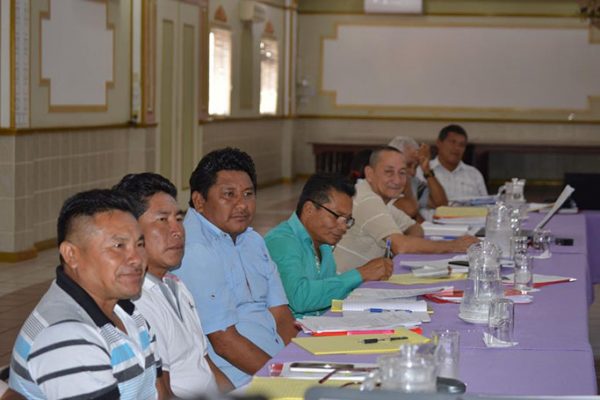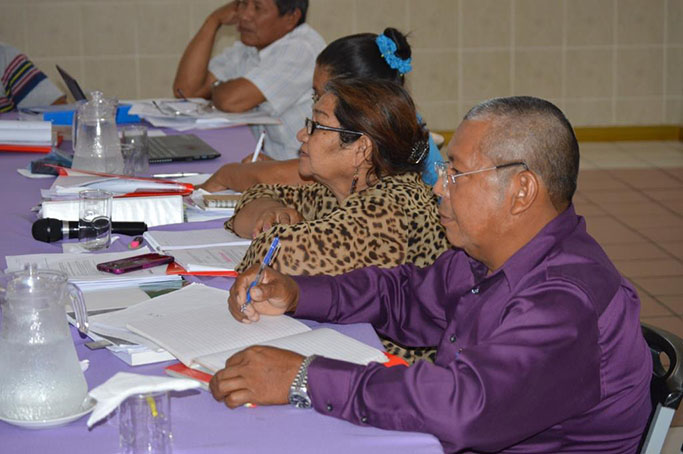Indigenous organisations on Thursday completed training of facilitators for consultations on the revision of the Amerindian Act 2006.
A release on Friday from the Amerindian Peoples Association (APA) said that the four-day workshop brought together indigenous representatives from several organisations, villages and regions from across Guyana.
The release said that the Steering Committee comprises national and grassroots organisations such as the APA, National Toshaos Council (NTC), Guyana Organisation of Indigenous Peoples, North Rupununi District Development Board, The Amerindian Action Movement of Guyana and the National Amerindian Development Foundation as well as various district councils like the Upper Mazuruni District Council, South Rupununi District Council, North Pakaraimas District Council and Moruca District Council.

The meeting, the release said, trained individuals to input information on key sections of the Act and what this would mean to its amendment. The facilitators are expected to support communities in building capacity towards the effective and organized presentation of information for revision of the act. This will then be submitted to the Ministry of Indigenous Peoples’ Affairs.
Earlier this month, the release said that the Steering Committee met with the Minister of Indigenous Peoples’ Affairs, Sydney Allicock, in an effort to find synergies for the revision process. The release said that while both Ministers of the Ministry declared that the Steering Committee’s proposed strategy was a “commendable document”, the ministry’s revision process in itself will be done separately since, according to the Ministry, the Government has its own role to play. The Ministry has indicated that there will be opportunities for recommendations coming out of parallel processes during the consultations to coalesce where possible.
The release said that the Steering Committee functions to guide a formal independent process towards the revision of the Amerindian Act of 2006. It said that this move came following repeated calls from various indigenous leaders, their communities and organisations to amend or revise the 2006 legislation to ensure that the language is in line with international laws.
The release said that the Steering Committee will be guided by a framework, which was developed by representatives out of prior meetings between organisations and district councils and which outlines a Code of Conduct; a work plan that includes identification and training of facilitators to conduct consultations; a consultation strategy with timelines; a communication strategy and feedback mechanism, and a budget. Arrangements to source independent technical and legal experts have been initiated. These experts will support the work of the Steering Committee under clearly defined Terms of References collectively formulated by the committee.
The release said that the Steering Committee will function as a body that will develop, propose, oversee, and approve different duties aimed towards ensuring an effective revision process. The committee plans to continue seeking meetings with the Minister of Indigenous Peoples’ Affairs, and his ministry to chart the way forward on the process in other areas.
The move to kick-start the revision process for the Amerindian Act 2006 began in March 2017 when a meeting of indigenous peoples’ representatives was co-hosted by the APA and the NTC, the release said. Following the conclusion of this meeting, a final report was compiled on the way forward which led to the development of the Terms of Reference for the current Steering Committee.
Support for the revision process comes from a larger APA project: Protecting Forests through Protecting Right in Guyana. This project was embarked upon with funding from the Norwegian Agency for Development Co-operation and the European Union through a partnership with the Rainforest Foundation US and the Forest Peoples Programme UK, the release said.






